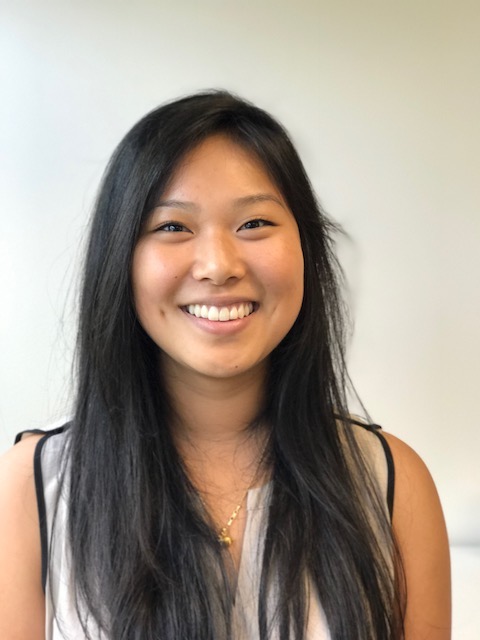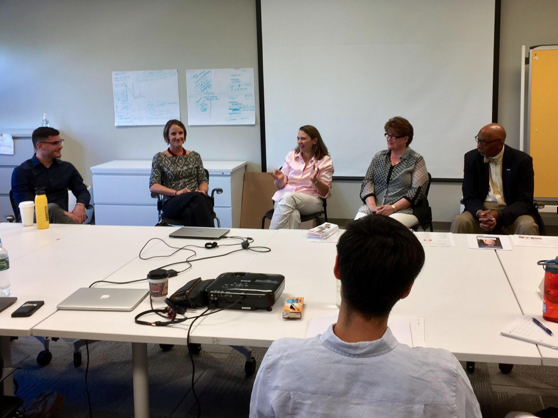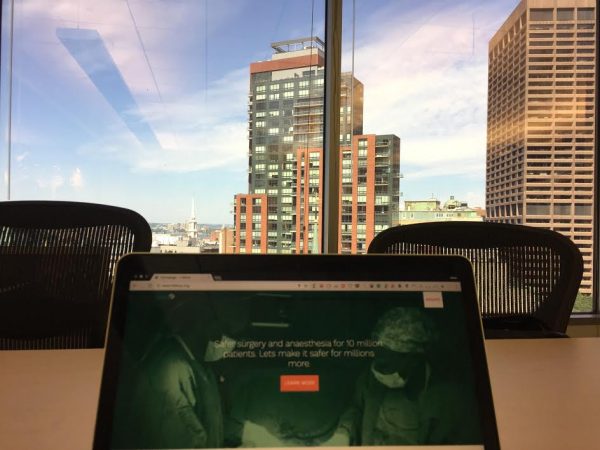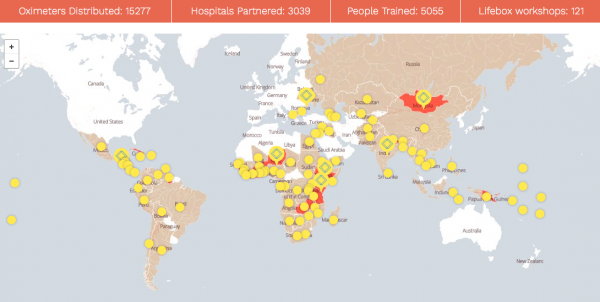
Meet Joon!
What appealed to you about Lifebox, and why did you want to join the team?
In my matching process with ServiceCorps, I was immediately attracted to Lifebox for two reasons.
One, the highly focused mission of the organisation. Lifebox was born to address a specific, critical need. The clarity of mission removes the question of why, and leaves the team with the question of how. I knew this would be an organization that would stay mission-driven and in turn, drive me.
Two, the relatively small size of the team, considering the scale of Lifebox’s global impact. Rather than help oil a well-run machine, I preferred to be a part of building the machine. I’m certain my experience here at Lifebox will be formative given the exciting growth Lifebox is undergoing.
How has your first week gone? Any surprises or interesting moments?
As a newly-minted college graduate with a background in finance and marketing, I haven’t had any experience working in the global health space. My first week has largely been spent getting acquainted with the world of anaesthesia and surgery in low-resource settings and the context in which Lifebox operates. Understanding the basis of Lifebox’s purpose is paramount to me, and what I’m learning now will definitely inform my work at Lifebox and beyond.
How did you find your way to the ServiceCorps Fellowship, and what do you think was the most compelling part of your application?
 At Boston College, I was on a committee of students who launched a new speaker series called “Business&”. We hosted events that bridged the worlds of business and industries that are typically not associated with businesspeople. The inaugural event was for Healthcare with Dr. David Barash, the Chief Medical Officer and executive director of the Global Health Portfolio at General Electric’s GE Foundation. GE Foundation funded the two-year pilot project to develop Lifebox’s surgical site infection reduction programme, Clean Cut®, in Ethiopia.
At Boston College, I was on a committee of students who launched a new speaker series called “Business&”. We hosted events that bridged the worlds of business and industries that are typically not associated with businesspeople. The inaugural event was for Healthcare with Dr. David Barash, the Chief Medical Officer and executive director of the Global Health Portfolio at General Electric’s GE Foundation. GE Foundation funded the two-year pilot project to develop Lifebox’s surgical site infection reduction programme, Clean Cut®, in Ethiopia.
In his talk, Dr Barash briefly mentioned a new program called ServiceCorps that GE sponsored in order to expose new hires to another side of the corporate coin. With his extraordinarily generous support, I applied, interviewed, and ultimately signed on with GE.
I can’t say with certainty why the ServiceCorps team selected me, so I’ll pick the reason I’d like it to be for! I consider myself to be a generalist at this point in my life, and that’s largely because I’m curious about a lot. When you surround yourself with passionate people, it’s quite easy to pick up the intrinsic nugget of fascination that excites those people and drives them to do the work they do. One of my everlong life goals is to dig up as many of those nuggets I can. Lifebox has plenty of those for me already!
What was the most inspiring part of the induction week, and what was it like having Kris Torgeson, Lifebox’s Global CEO, come to speak?
The induction week was really well done – I got to know my ServiceCorps cohort really well and found the training to be very thought-provoking. We spent most of our time reflecting on and discussing the plethora of issues that we would face moving forward, while also considering our own personal goals.
It was inspiring to hear my cohort’s stories and be around folks from all different backgrounds coming together for a shared reason. I had no doubt we would get along since we are a self-selecting population with common interests.
Having Kris join us in Ithaca was a huge honor, and such a funny coincidence! Casually, she had asked me about the programme and I mentioned that it was taking place at Cornell University where she happened to be that week. The panel was particularly intriguing for me, because my colleagues asked her really great questions. That gave me the chance to hear her perspective on a diverse range of topics as they related to NGOs. It’s always fun to be able to pick someone’s brain, and hers is obviously incredibly interesting! Kris also has a lot of energy, which is great because I thrive in working with high-energy, passionate people!

How do you think NGOs and corporations can learn from each other, and what do you hope to accomplish this year?
I could be totally incorrect in assuming everyone thinks this way, but I’ve found NGOs and corporations to be perceived as a dichotomy, rather than partners. There are tremendous lessons to be shared from both sides, but I’ll share the one that is most interesting to me at the moment.
NGOs are usually funded by individuals and institutions looking to make an impact, while corporations are generally funded by individuals and institutions looking to make a return. Folks tend to be more generous to corporations in allowing them to experiment and have high upfront capital expenditures.
When it comes to NGOs, there seems to be less allowance for experimentation, which can leave NGOs in a position conducive to stagnation and lack of innovation. These are dangerous distinctions, and I think there needs to be more flex for NGOs to try things and sometimes fail.
In general, corporations could definitely involve a bit more empathy in how they interact with customers and clients. When it comes to corporate philanthropy, there’s always an ulterior motive so I’m constantly grappling with the question of what matters more: positive impact with selfish intention or positive intention with insignificant impact?
My biggest goal for this upcoming year is to be able to understand the challenges that safer surgery and anaesthesia faces globally, and what factors drive success. I hope that I can add value to Lifebox along the way, of course. Now that I’ve declared this publicly it’ll have to happen!



